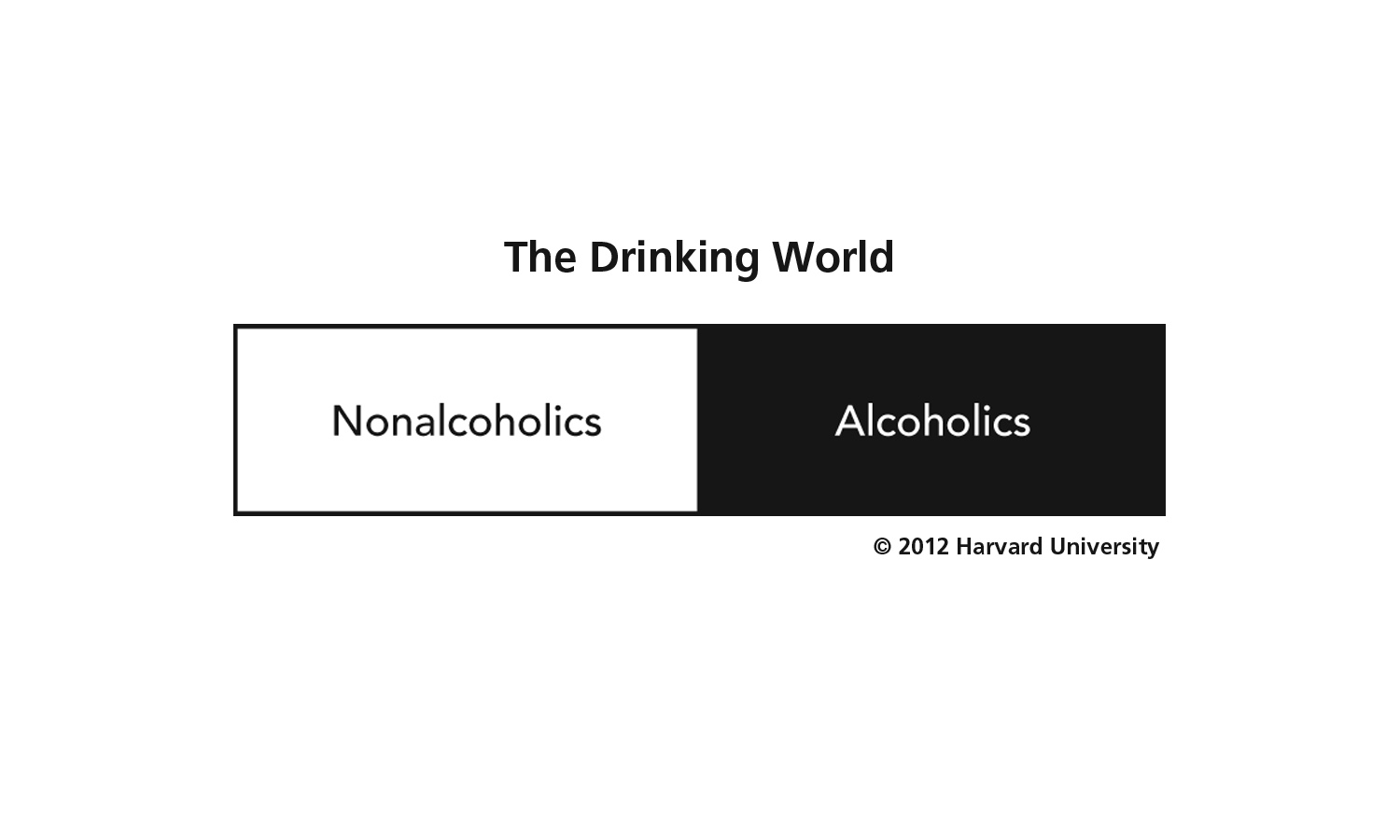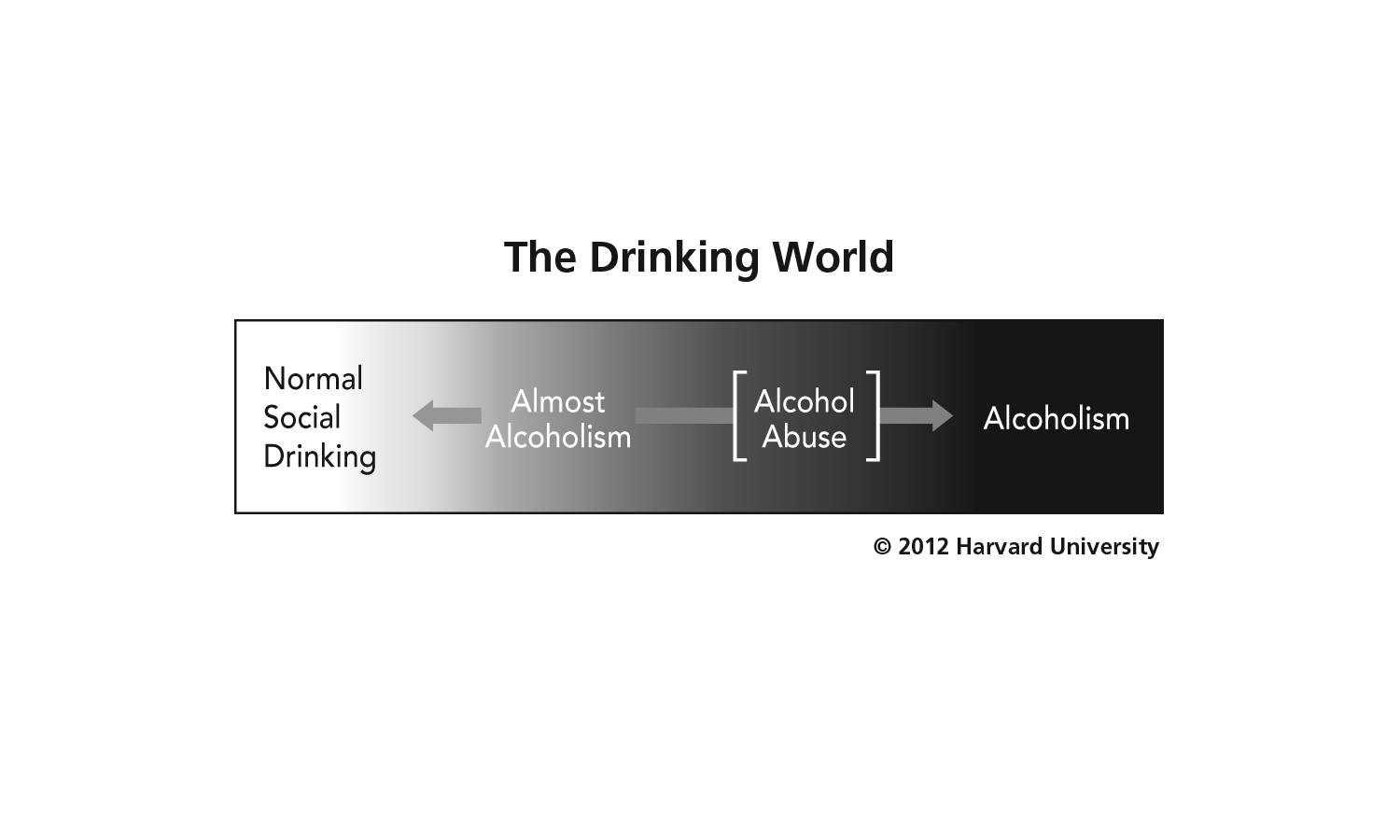
For the past five years a task force appointed by the American Psychiatric Association (APA) has been busy working on the first revision of its Diagnostic and Statistical Manual (DSM) in 15 years. The reason that DSM is so important is that it is widely regarded as the gold standard for determining what is (and is not) a "mental illness," and therefore what does (and does not) qualify for treatment. As it turns out, the changes that are being proposed -- especially as they pertain to alcoholism -- may open the door to many people understanding that they have a problem and seeking help for it sooner than later. This would be a good thing.
For a long time, mental health professionals (and consequently the general public) viewed drinking problems in terms of two or three categories. The two "diagnoses" they used were "alcohol abuse" and "alcohol dependence." If a person's drinking was not severe enough to satisfy the criteria for one of these categories they were considered "normal." This led to a popular view of the "drinking world" that looks something like this:

Shifting to a Dimensional View
The above "categorical" view of drinking led many people to feel that they were "safe" as long as their drinking did not place them in one of the two diagnostic categories. But is that true? No, it is not. A large and growing body of research has shown that consistent drinking at levels far below the alcoholic level can have significant impacts: physically and emotionally, on our relationships and our work life. Some of these have been documented in my previous HuffPost blogs.
The step forward that the APA will be taking is to recommend that we think of drinking in terms of a "dimension" or "spectrum," as opposed to a series of categories.
In other words, they are proposing a revised view of the "drinking world" that looks something like this:
This change has several advantages, beginning with the fact that it more accurately represents the way men and women really use alcohol. It suggests that some people who drink limit themselves to what cold be called social or occasional drinking. In general these people drink within the limits suggested by the National Institute on Alcohol Abuse and Alcoholism, which is no more than one drink per day or seven per week for women, and more than four drinks per day or 14 per week for men.
At the other end of this dimension, or spectrum, are those men and women who have traditionally met all the criteria for a diagnosis. For this group, drinking has universally led to severe negative consequences. Not wanting to "connect the dots" between drinking and those consequences is what we mean when we speak of "denial."
But what about the large grey area that lies between the extremes? Are we to assume that all those men and women who populate that zone (and who constitute a large group indeed) warrant a diagnosis and treatment? Not at all. However, as the APA itself points out, the switch to a dimensional view of drinking allows us to think of problem drinking in terms of degrees instead of simple categories. That in turn opens the door to early recognition, treatment, and even prevention. That kind of change in thinking could prove to be a boon to literally millions of men and women. For many of these individuals self-help may be a viable alternative to professional help.
Assess Yourself: To see where you fit in the drinking world go to www.TheAlmostEffect.com and take the quiz that you will find there. You can then decide for yourself if change is in order.
Joseph Nowinski, Ph.D. is co-author of Almost Alcoholic: Is My (or My Loved One's) Drinking a Problem?
For more by Joseph Nowinski, Ph.D., click here.
For more healthy living health news, click here.
